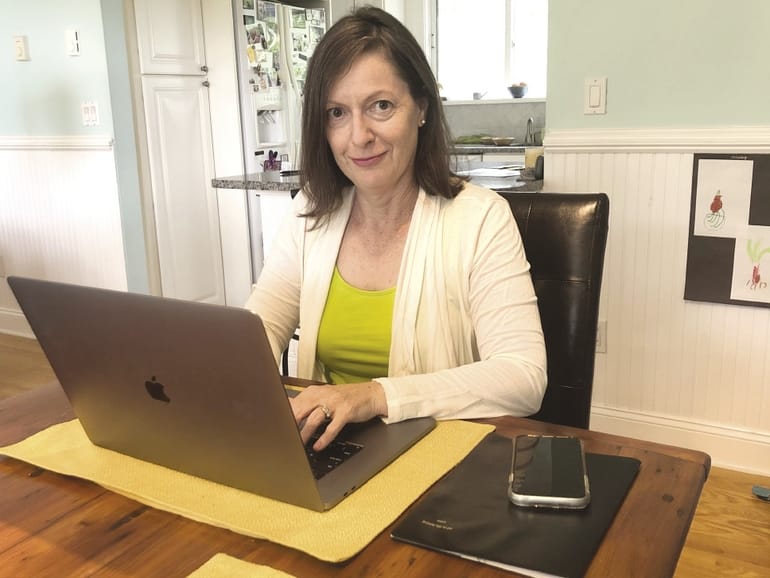Ellen Matloff, president and CEO of My Gene Counsel, has been described as an advocate and a visionary for her work in the field of genetic testing.
“She’s an advocate for patients, for genetic counselors, her team, and her community. She deeply cares for our team, our network of partners, and all the people we serve,” said My Gene Counsel co-founder Danielle Bonadies.
New Haven-based My Gene Counsel is a digital health company that provides personalized, easy-to-understand genetic testing reports. The company is located at 59 Elm Street, although during the pandemic, employees are working from home. The company has six full-time employees and about 18 part-time workers and consultants.
Matloff very early on recognized what needed to be implemented and changed in the field of genomics, Bonadies said.
When Matloff noticed that several patients had their genetic testing interpreted incorrectly, she asked other genetic counselors to submit their misinterpretation cases through a posting on a professional listserv. That led to a series of peer-reviewed published articles on the topic.
“These papers have been used to illustrate why a genetics professional should be involved in genetic counseling and testing of patients to avoid these errors. Ellen recognized the need for digital genetic counseling tools in the field of genomics early on and acted upon this instinct to launch My Gene Counsel,” Bonadies said.
Matloff, the founder and former director of the Cancer Genetic Counseling Program at Yale School of Medicine, was a plaintiff in the 2013 BRCA gene patent case that went before the Supreme Court in 2013. That decision led to lower prices for genetic testing.
Matloff said the idea for My Gene Counsel began percolating in 2013, and she and Bonadies started the company in 2015. In 2019, they were able to trademark their main product — Living Lab Reports, which contain genetic counseling information that sends updates to patients and clinicians as new information about the disease surfaces.
“It’s not enough to have the report. A report is stagnant the moment you get it,” Matloff said. “We always knew that any type of laboratory test or medical procedure would need the product we’ve created.”
Matloff said her customers are precision medicine companies, healthcare systems, and research foundations. An individual patient would get the Living Lab Report for free from one of those customers.
Matloff, who declined to disclose company revenues, said they decided to develop a COVID-19 Living Lab Report in March. Although they don’t have customers for this product yet, it would provide patients with medical, scientific, emotional, and resource-based information related to the deadly virus.
“If you had COVID March 1, you would have been told wearing masks isn’t necessary,” Matloff said. But obviously, that and other information and knowledge about the virus has changed since then, she said.
“This can show you how important it is to have a Living Lab Report. So when something significant changes, you’re aware of it,” she said.
Matloff said one reason why her company stands out from the pack is that it is founded and run by women.
“I was recruited to Connecticut by Yale and have now lived and worked here for 25 years. My co-founder Danielle was born and raised in Connecticut and has lived and worked here for almost all of her life. So, we are truly invested in the state. There are very few companies that are founded and run by women, and most of our staff are also women. This is especially unusual in digital health tech companies,” Matloff said.
Matloff said that the digital tools her company provides are patient-centric.
She said that as clinicians are burdened and strapped for time and resources, it becomes even more critical to give consumers a way to be active and knowledgeable participants in their own health care.
“Genetic testing, but really any medical testing, can be confusing and scary for consumers and they have few resources to really understand their own information and keep up-to-date over time and ‘in the know.’ Understanding your own medical information is very empowering and is associated with better health outcomes, and allows patients to advocate for themselves,” Matloff said.
Written by Karen Ali. Originally published on NewHavenBiz.com.

